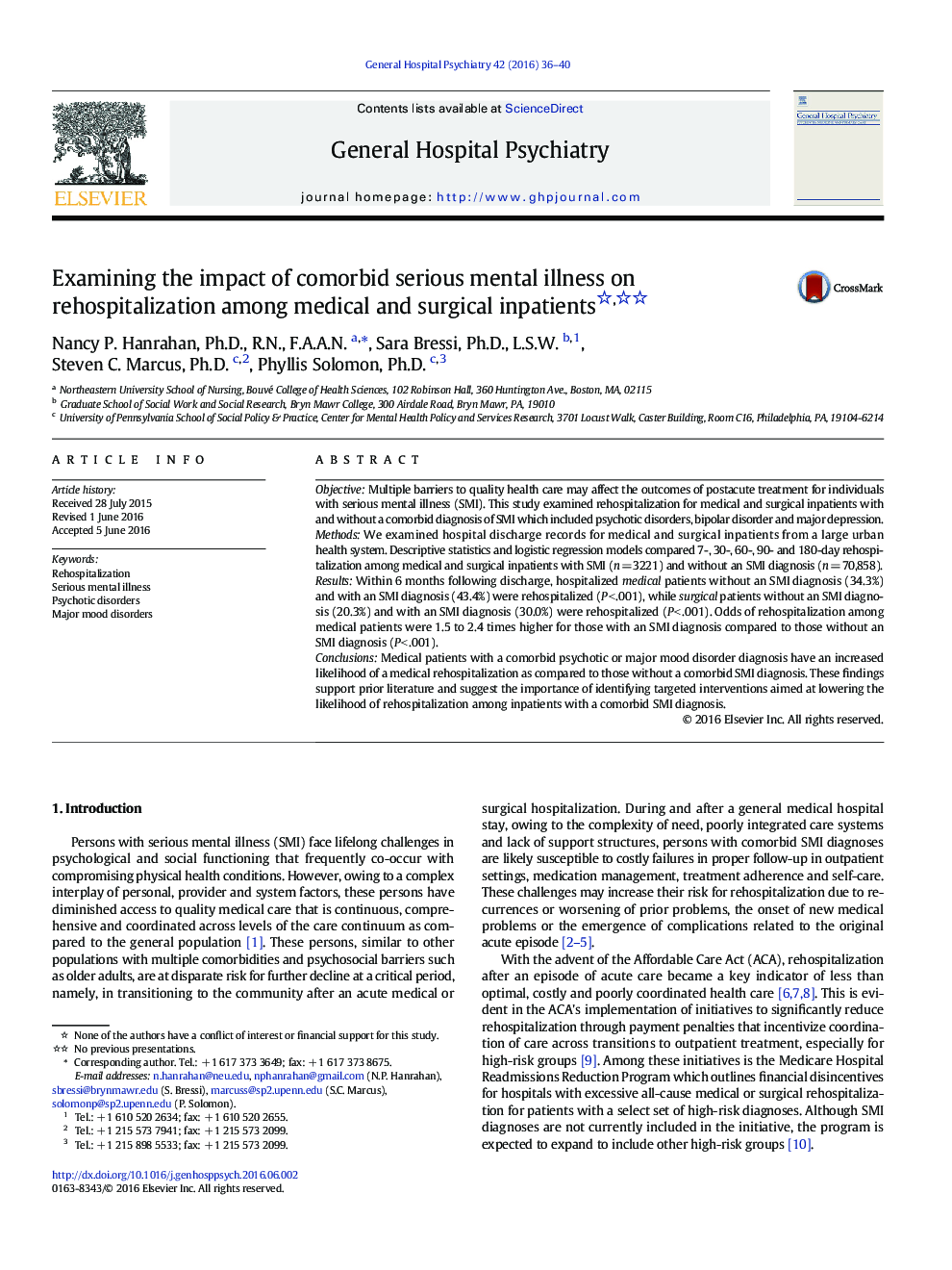| Article ID | Journal | Published Year | Pages | File Type |
|---|---|---|---|---|
| 3237528 | General Hospital Psychiatry | 2016 | 5 Pages |
ObjectiveMultiple barriers to quality health care may affect the outcomes of postacute treatment for individuals with serious mental illness (SMI). This study examined rehospitalization for medical and surgical inpatients with and without a comorbid diagnosis of SMI which included psychotic disorders, bipolar disorder and major depression.MethodsWe examined hospital discharge records for medical and surgical inpatients from a large urban health system. Descriptive statistics and logistic regression models compared 7-, 30-, 60-, 90- and 180-day rehospitalization among medical and surgical inpatients with SMI (n = 3221) and without an SMI diagnosis (n = 70,858).ResultsWithin 6 months following discharge, hospitalized medical patients without an SMI diagnosis (34.3%) and with an SMI diagnosis (43.4%) were rehospitalized (P < .001), while surgical patients without an SMI diagnosis (20.3%) and with an SMI diagnosis (30.0%) were rehospitalized (P < .001). Odds of rehospitalization among medical patients were 1.5 to 2.4 times higher for those with an SMI diagnosis compared to those without an SMI diagnosis (P < .001).ConclusionsMedical patients with a comorbid psychotic or major mood disorder diagnosis have an increased likelihood of a medical rehospitalization as compared to those without a comorbid SMI diagnosis. These findings support prior literature and suggest the importance of identifying targeted interventions aimed at lowering the likelihood of rehospitalization among inpatients with a comorbid SMI diagnosis.
